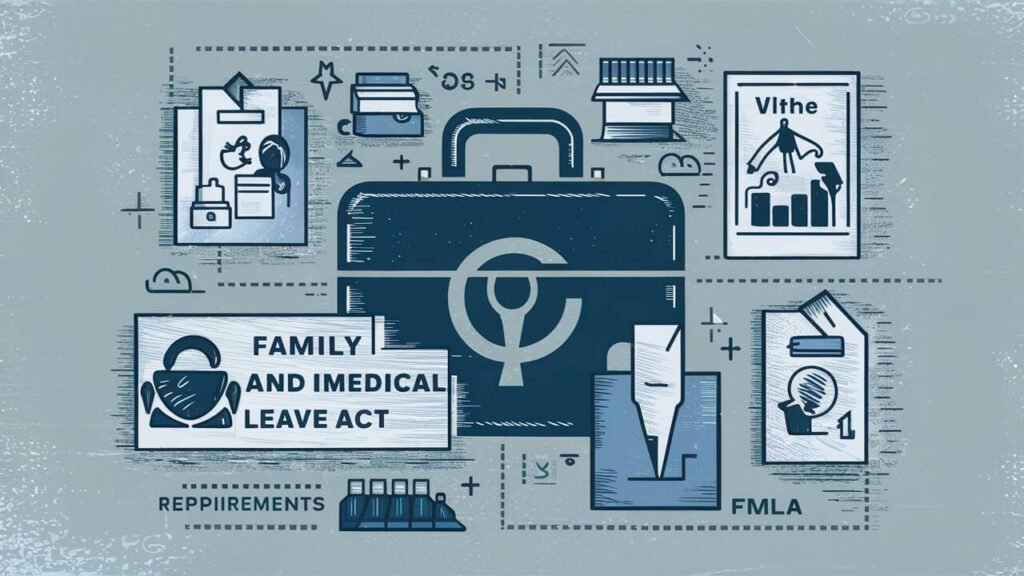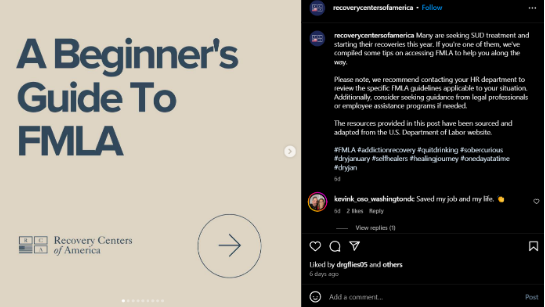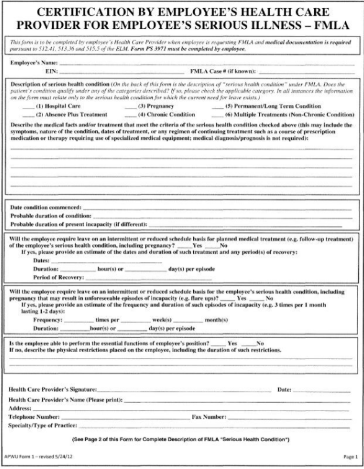With a seasoned background in rehab, I can ensure one can use FMLA for alcohol rehab.
Addicts can start recovery during those 12 weeks of FMLA leave.
In this extended article, I’ll delve deep into the FMLA process for alcohol rehab by sharing real stories of individuals who have successfully used FMLA for outpatient rehab or inpatient rehab.
You’ll gain an understanding of how this policy can be a lifeline for individuals seeking recovery.
Understanding FMLA Eligibility Requirements: Deep Dive

FMLA law allows employees to take leave up to 12 weeks in 12 months. But you must show specific medical and family reasons and some necessary paperwork. Including,
- The birth or adoption of a child.
- The care of a spouse, child, or parent with a severe health condition.
- The employee’s serious health condition prevents them from performing the job.
A serious health condition, the birth or adoption of a child, or the care of a spouse, parent, or child with a severe health condition are some criteria that fall under FMLA.
Source: Instagram.com

To be eligible for FMLA for rehab leave, you must meet the following requirements:
- You must work for a covered company, a public/ private business with 50 or more workers within 75 miles of your place of work.
Otherwise, a public agency, an elementary or secondary school, no matter how many people work there.
- You must have worked for your company for at least a year, though those months don’t have to be in a row.
But you must have worked at least 1,250 hours in the 12 months before you take leave.
- You must have a severe health problem that keeps you from doing the most important parts of your job.
A serious health condition is an illness, injury, disability, or physical or mental state that requires hospitalization or long-term care from a healthcare provider.
If this definition is true, then alcoholism is a severe health problem.
Alcohol addiction is considered a serious health condition under FMLA, as I can ensure as a specialist.
However, you cannot use FMLA leave for absences caused by the use of alcohol, such as hangovers or intoxication.
You may also need to show proof from your doctor that you need to take time off work because of your health.
But your boss can make you use any paid leave you saved, like vacation or sick time, as part of your FMLA leave.
The Process of Getting FMLA for Alcohol Rehab
You should know the whole process in depth before taking any step. Go through the points below-
1. Employee Absent for FMLA Rehab
Receive notice that an employee is or will be absent for a reason that may qualify for FMLA for rehab. .
Such as my Patient John telling his employer he needs to leave for alcohol rehab. His employer provides FMLA paperwork.
John gets medical certification from his FMLA alcohol treatment facility. John approved for 12 weeks of unpaid, job-protected leave to attend rehab.
2. Determine Preliminary FMLA for Alcohol Rehab Eligibility
- Determine whether you have been employed with the state gov’t for at least 12 months.
Identify continuous state service dates. If under 12 months, review for previous state service, service to the state through a temporary services agency, or absence on military leave.
b . Determine whether 1,250 hours worked in 12 months before leave begins.
- Review leave taken for the preceding 12 months.
- Check for additional leave used during the current pay period.
- Subtract leave and holidays (and furloughs and suspensions, if applicable) from 2,080 standard hours (for full-time employees).
c. Determine whether you appear to have an FMLA-qualifying reason for leave.
d. Determine whether you used all available FMLA leave.
e. Review leave balances to determine whether you will be paid or unpaid.
3. Issue Notice and Documentation Deadline
- You should be provided eligibility, rights, and responsibilities notice to within five (5) business days of becoming aware that a current or upcoming absence may qualify for FMLA protection.
i. (Optional) If you are at work, you should be invited to discuss FMLA.
If you did not submit an agency FMLA request form. the agency may ask you to complete it during the meeting.
ii. If you are not at work, you may receive the Eligibility, Rights and Responsibilities Notice, and a certification form that can be used to provide supporting documentation for FMLA leave, if needed.
Source: Certification for FMLA

b. Maintain records by agency practice.
My friend Jane informed her supervisor that she needed to take time off for a medical condition in the middle of week.
On the day before weekend, Jane’s employer provides her with the FMLA Eligibility, Rights, and Responsibilities Notice and a certification form to be completed by her doctor. The notice states Jane must return the certification within 15 calendar days. After submitting the certification, her leave was granted within a few days.
4. Confirm Eligibility & Issue Designation Notice
- Receive and review FMLA alcoholism paperwork.
- If supporting documentation is incomplete or otherwise insufficient to determine eligibility, a request can be sent to you for complete and sufficient certification.
c. If complete and sufficient documentation is not received, FMLA may be delayed or denied.
d. If supporting documentation is complete and sufficient, prepare the FMLA Designation Notice and provide within five (5) business days of receiving the information that allows the employer to determine eligibility.
- If you are absent for a serious health condition, include a requirement for a fitness-for-duty certification before you can return to work if such is required for all similarly situated employees in the agency.
- If you are on leave without pay (LWOP) for an entire pay period, include information for continuing benefits while on LWOP.
- If the information received does not support eligibility for FMLA, indicate on the Designation Notice that the absence will not have FMLA protection.
e. Maintain records by agency practice, including entering FMLA into PeopleSoft TeamWorks, if available, or some other tracking system.
5. Monitor Return: Go through Verification
a. Verify that the employee returns to work as scheduled and has a fitness-for-duty certification if required.
b. (Optional) Prepare return-to-work correspondence, welcoming the employee’s return.
c. If the employee is not released to return to work at the expiration of the FMLA or leave entitlement because of a medical condition, determine whether the agency has a reasonable accommodation obligation under the Americans with Disabilities Act, as amended. If so, pursue reasonable accommodation.
d. If the employee does not return as scheduled, and the agency does not have a reasonable accommodation obligation, then the agency should take appropriate employment action consistent with similar situations
FMLA Process was taken from FMLA Toolkit.
People Also Asked
Does Alcohol Rehab Qualify for FMLA?
Yes, alcohol rehab qualifies for FMLA if it involves inpatient care or continuing treatment by a health care provider and if the employee meets the other eligibility requirements for FMLA. Alcohol rehab options may include inpatient treatment at a specialized facility, outpatient counseling and therapy, or participation in a 12-step program. Employees seeking FMLA for alcohol rehab must provide certification from a health care provider documenting the need for treatment and the expected duration of the rehab program. It’s important for employees to understand their rights and responsibilities under FMLA when seeking alcohol rehab options and to communicate openly with their employer to ensure a smooth process.
Does FMLA Cover Drug Rehab?
Yes, FMLA covers drug rehab if it involves inpatient care or continuing treatment by a health care provider and if the employee meets the other eligibility requirements for FMLA.
Taking time off work to go to alcohol rehab can be challenging but can also save your life.
If you have a problem with drinking and want help, you may be able to use FMLA leave to keep your job and benefits while you work on getting better. Know if Americans can attend rehab in Canada.
- What to Pack for 30-Day Rehab? FREE Checklist - May 30, 2024
- Types of Outpatient Rehab: Difference One Should Know - March 28, 2024
- Truth Behind FMLA: Hidden Hurdles of Alcohol Rehab Leave - March 28, 2024